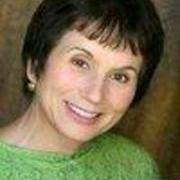Hundreds of people have asked me why someone develops an eating disorder. Of course many issues are involved, but from my exploration of this field over the years, I have concluded that there is one outstanding theme that runs through every person with an eating disorder whom I have encountered.
Early in their lives, people with eating disorders have experienced, on a sustained basis, relentless boundary invasion on every level.
When their physical, emotional, psychological, intellectual, sexual, and creative boundaries are consistently ignored and penetrated, people experience total boundary invasion. With no control and no way to end, protest, or, often, even acknowledge such invasions, these persons feel helplessness, despair, and a certainty that they are worthless to themselves or anyone else.
The consequences of such total invasion are vast. One consequence is an eating disorder. Having had so many boundaries disregarded, a person has no knowledge or skills in recognizing or honoring boundaries herself. She will eat or starve for emotional relief.
She may eat vast amounts of food for comfort value alone. She may deprive herself of food until her life is in danger. She has no internal regulator that tells her when she has reached her limit and experienced enough. Being oblivious to any boundaries means being oblivious to limits of any kind.
The compulsive overeater eats whenever and whatever she likes. She bases her choices on self-medication issues, not feelings of physical hunger.
The anorexic will not eat. There is no limit to her not eating. She will starve herself to death in search of relief from her emotional pain. She knows nothing of the experience of having enough. She couldn't say, "Enough," to an invader of her boundaries, and she can't say it to herself. The concept of enough has no meaning to her. She often feels that if she "disappeared," she might find some permanent relief.
I have heard countless anorexic young women talk ethereally, with a lost-in-a-beautiful-world-of-angels smile, of how wonderful it would be to become a vapor or a light dancing spirit in the clouds. Ah, such spiritual bliss, they imagine. In reality, it's the final self-protective act, to destroy their bodies and their lives completely. Then they can truly escape the complexities of being alive.
The bulimic will binge grotesque amounts of food. She will assault herself with more food than her body can tolerate.
The compulsive overeater will, at last, have to stop eating if only because of the pain in her distended stomach. Her body sets a final limit. The bulimic has no such limit. She experiences (in her mind) no consequences of the food assault on her body. When her body cannot bear more, she will vomit it all out. Then she will resume her binge. She may reach her body's limits many times. Each time she does, she can throw up again and continue.
Eventually she stops, because she is completely exhausted, or she is in danger of being discovered. "Enough" has no meaning to her. There are no limits and no consequences for her disregard of her boundaries.
Realistically, of course, there are plenty of consequences. Her behavior inflicts serious damage to her body. And each time she attacks herself with a binge-and-purge episode, she destroys more of her spirit, soul, self-esteem, sanity, health, and value to herself and others.
Each violation deepens her ritualistic behavior, and she becomes more entrenched in her disorder. The consequence is increasing anguish and despair. Yet the eating disorder is not the cause of that anguish and despair. The eating disorder exists to numb her from her already existing psychological agonies.
For a while, maybe a few years, the eating disorder successfully blocks her awareness of pain too difficult to bear. But eventually the protective device of the eating disorder becomes just another boundary invader, this time self-induced, that weakens and damages her even more.
What do I mean by a history of boundary violations? Blatant and extreme boundary violations involve sexual molestation, sexual abuse, and physical abuse. Much has been written about these areas now, especially in material exploring Post Traumatic Stress Disorder (PTSD) and Dissociative Identity Disorder (DID). Use your search engines to find some quality information posted on the Internet in these subject areas.
However, there are other kinds of boundary violations, and these are less dramatic, less discussed, more prevalent, and just as devastating to a persons psyche. When, in the name of caretaking, people in authority take over a young person's life, it constitutes boundary invasion.
When others deny her privacy, read her diary, borrow or take her things without permission, or use their ideas or goals or personalities to overwhelm her efforts in school or sports, that is a violation of her boundaries.
When others disregard or disdain her choices or deny her any control over her personal life, clothes, food, friends, and activities, they are invading her boundaries.
An invasion of boundaries also takes place when, in the name of caretaking, people give her no responsibilities of her own and attach no consequences to her actions. When the child or adolescent can have all the things she asks for without putting forth effort to earn such gifts, she learns nothing about personal effort, limits, consequences, or the meaning of enough. If she wants something, she gets it. That's all. If someone picks up her clothes, does her laundry, fixes her car, pays her bills, lends her money or things without expecting them returned, she experiences no boundaries and no limits.
If she doesn't have to keep her promises, if she doesn't reciprocate with caring actions for people who care for her, she learns nothing useful about herself in relationship to other people. The only thing she learns with certainty is that there are no limits to her behaviors or desires.
These boundary invasions are not loving acts, nor are they "spoiling" a child through overindulgence. Quite the contrary, they are acts of neglect. The child's taste, mind, capacity to learn, and ability to grow and function as an independent agent in the world remain unacknowledged.
When others, even well-meaning others, ignore her identity as a unique, developing, and competent individual and flood her with their personal agendas, she feels as if a steamroller had flattened out her psyche. She may learn to please, to manipulate, to compete, or to control, but she is unable to learn to be fully present in the world as her genuine self.
She doesn't learn that she has meaning and value. She doesn't learn that she can put that meaning and value within her to work to accomplish goals.
For example, if she breaks something, whether it is a lamp, a car, her word, or someone's heart, it is possible and healthier to give her the responsibility for making necessary repairs using her own resources and her own creativity. In such a process, she learns what effort means. She learns what responsibility and consequences for actions mean. She learns reasonable limits and reasonable expectations. She develops resources to make healthy and caring decisions in the future.
Without such lessons, she learns are the tricks involved in adapting quickly to the expectations of others or being manipulative to get what she wants. These are poor and insubstantial tools to rely on when building an adult life.
Somewhere inside, over time, she may gradually realize this. But without a sense of boundaries, she will only become bewildered and anxious. She will accelerate her practice of using her eating disorder as a way to numb her feelings of anxiety. She will use her manipulating skills to get what she wants from whomever she can exploit.
As time passes, fewer people in her life will allow themselves to be manipulated. The quality of her circle of associates will decline as she seeks people she can control with her inadequate methods of functioning in the world. She will find herself in bad company.
This becomes all the more reason to rely on eating disorder behaviors for comfort. The people around her are less reliable all the time. And finally, they tolerate her presence only because they can manipulate her.
She arrives at the total-victim position. Her manipulative skills backfire. People exist in this world who are better at manipulating and using than she. She has found them. She becomes their target and then their prey. Her dependence upon her eating disorder becomes her most valuable and trustworthy relationship.
Early in her development, she learned through massive boundary invasions (which perhaps seemed ordinary and unimportant at the time) that she was helpless to assert herself. She learned that she had no private or sacred space to cherish and respect. She could not acknowledge, even to herself, that she was being thwarted, invaded, controlled, manipulated, and forced to deny large aspects of her natural self. She had no recourse except to comply.
To succeed at being unaware of her natural tastes, curiosities, and inclinations and her pain in restraining her natural tendencies, she developed an eating disorder. Now that she's older and her manipulation skills are failing her, she only has her eating disorder to rely on. This may be the most crucial time in this person's life.
If her pain and despair are terrible enough and she is certain she cannot bear this way of living anymore, she still has choices. She can continue to rely on the eating disorder and by so doing take the path to self-destruction. Or she can reach out and get help.
This is a tough position for her. She's never known what enough was. Yet to choose to get help, she has to recognize that she has had enough pain. She's never known what a limit is. Yet she has to recognize that she has reached her limit and must choose between death and life. She has only known about pretense and manipulation. Yet she has to be honest to reach out for genuine help.
She feels massive anguish and pain before she stretches beyond her life pattern into what might bring her healing and recovery. She's reaching for something she can't imagine. It's difficult for a person with an eating disorder to decide to get help. She would have to allow herself to trust someone with knowledge of her real personhood.
She doesn't yet know that people who do respect and honor boundaries actually exist in this world. She doesn't yet know that there are people who can and will honor and cherish her most private and sacred inner spaces. She doesn't yet know that someday the trustworthy, respectful, steadfast, and competent caretaker she needs so badly can be herself.
Her first move toward recovery requires all the courage she can muster. Her recovery begins when with fear or rage, she rallies her courage to reach out for help.
Difficult, yes. But what she doesn't know yet is that she has been courageous all her life. She makes a grand discovery when she learns that she can apply her strength and courage to her own health. She can use her gifts to, at long last, be free of her eating disorder, be her genuine self in the world.
Professional Resources for Finding Help
Academy for Eating Disorders (AED)
American Anorexia and Bulimia Association (AABA)
Anorexia Nervosa and Related Disorders (ANRED)
Edreferral.com
International Association of Eating Disorders Professionals (IAEDP)
Joanna Poppink's Eating Disorders Resource List In-Patient Treatment Programs
National Eating Disorders Association (NEDA)
Joanna Poppink, Los Angeles psychotherapist, licensed since 1980 (MFT #15563), is deeply committed to bringing recovery to people suffering from eating disorders.
Her specialized psychotherapy practice is designed to allow clients to progress through anxiety situations to ongoing recovery from bulimia, compulsive eating, anorexia and binge eating. Her primary goal is to provide people with a way to achieve thorough and long lasting healing.
Eating Disorder Recovery book in progress through Conari Press
10573 West Pico Blvd. #20
Los Angeles, CA 90064
http://www.eatingdisorderrecovery.com
[email protected]





Add a Comment206 Comments
The statement here is that your brother lost weight due to the stressful situation of losing his father. A very normal reaction . However if he has an underlying brain disorder that renders him susceptible to anorexia as little as 5 or ten lbs below his set wt. can trigger AN. That is why saying "Carl you must eat" doesnt work. The disease wont let him make that choice. His irrational thinking is caused by the ED. The only hope he has is to be re-nourished . . Unfortunately it is hard to do since he is an adult and cant really be forced into being refed. Carl has a disease that is not his fault and has nothing to do with willpower or the desire to kill himself .He wouldnt have quit drinking if that was his goal. Now that he is a prisoner of an undernourished brain obsessions and depression will rule him.
June 10, 2009 - 12:37pmThat is the most frustrating part.{ There is some evidence and studies that suggest using short term atpical antipsychotics can help them see more rationally }
That is why when a child develops ANOREXIA it is up to the parents to make sure that they are re- fed asap. Then the underlying comorbid conditions if present can be addressed in therapy etc.after their brain has been renourished . I e anxiety /esteem issues etc.
So if a therapist or "eating disorder specialist" is blaming the parent or tells the parent/ family of a child to stay out of the food issues and leave it up to them, dont walk out on their office RUN!
Jane
This Comment
Shelley,
You mention that you are a more than three decade sufferer of ED, with recent flare-up of restrictive bulima; you have been in therapy for more than 17 years; and you defend Joanna and her theory which has no scientific data to support.
Many of the mothers in our multi-family group therapy that we attend with my daughter who suffers from ED - many of these mothers had/have ED themselves. And generally, if the mom had/has anorexia, the daughter has anorexia; mom has bulimia, daughter has bulimia. I'm referring to the mothers/daughters in our group. There is a clear genetic component.
You also mention that you are a great mom.
Do you have female children?
How will you feel about your motherhood skills should one of your daughters become a sufferer of an ED?
If your daughter developed ED, would you then question your motherhood skills? Would your opinion of yourself as a GREAT MOM suddenly shift to your thinking of yourself as an abusive mom?
Just curious.
I would love for you to put yourself in the place of mothers who thought they were great moms until ED came on the scene with one or more of their daughters.
June 10, 2009 - 6:37amThis Comment
So well said!
A note though, the genetic link could well make a son more vulnerable to this awful disease. Watch out for your sons too!
From PubMed:
http://www.ncbi.nlm.nih.gov/pubmed/11262504?ordinalpos=1&itool=EntrezSystem2.PEntrez.Pubmed.Pubmed_ResultsPanel.Pubmed_DiscoveryPanel.Pubmed_Discovery_RA&linkpos=2&log$=relatedarticles&logdbfrom=pubmed
June 10, 2009 - 7:54amThis Comment
Shared genetics, again from ED experts, Dr M. Strober, Dr W. Kaye et al on PubMed:
http://www.ncbi.nlm.nih.gov/pubmed/10698815?ordinalpos=1&itool=EntrezSystem2.PEntrez.Pubmed.Pubmed_ResultsPanel.Pubmed_DiscoveryPanel.Pubmed_Discovery_RA&linkpos=1&log$=relatedarticles&logdbfrom=pubmed
FACTS we do know:
1.The rates of ED's are higher in families with a shared gentetic pattern.
PubMed.
2.An equal number of ED sufferers to that of general population have suffered abuse. PubMed.
Joanna, I have to ask,
how can you substantiat the hypothesis you present here?
If it is simply on cases you have seen, how can you dismiss experts, yes experts, such as Laura Collins, who I would sugest has had contact with many more acknowledged experts in the field of ED's and probably as many families and sufferers as yourself, when she questions the vaildity of your hypothesis?
I would like to see your evidence posted here. I respect this is your theory but others, vulnerable sick ones and their faimlies could be very damaged by your theory.
June 10, 2009 - 9:06amWithout evidence, this is, just a hypothesis, not fact.
MS
This Comment
I posted this earlier, but with so many posts (I cannot seem to get to them all), what I'd written may have been missed by some.
I know in my heart that a big part of the reason I have ED's is that I was sexually abused by my father, in my own home, at ages 11-12. My mother had no idea (I determinedly kept it a secret from everyone), and she was a great, very loving mother (she still is!). Being sexually abused is the ultimate crossing of a child's boundaries. That is what happened to me. I'm in no way at all saying that is the reason for any other people developing ED's! I'm only telling my own, very personal story.
I, too, completely respect the exchanges of thoughts from all who have posted. Again, as an adult with ED's (not an adolescent with a loving family to help me in my recovery) I had a very difficult time finding the help I needed; the help that would work for me.
And again, I completely respect the parents who have a child that sufferes from this disease. It is a tragedy that I cannot comprehend, or even imagine!!!
My posts are only meant to show who I am, as a grown woman, and to express the compassion I feel for parents who feel so desperate and helpless in helping their children to get well. That is all I mean to do.
It's difficult to express oneself in this type of forum. If we were all sitting in a room in a circle, facing each other, I believe it would be so much easier to be understood in the way we intend.
It seems like this particular blog is mostly parents of adolescents who have suffered from ED's. Maybe I should just pull out and not post here anymore. I'm really feeling like I'm an isolated island in the middle of an ocean.
I've told my story. I hope that maybe someone can gaine some sort of inspiration from it. That is all I can do.
Shelley
June 9, 2009 - 9:17pmThis Comment
I respect the recent exchange of messages that are authentic, validating and demonstrate the human aspect of the emotions brought up here. A synthesis is that all consumers, parents/caregivers, etc. deserve the choice of what treatment providers and approach will most effectively meet their needs. The only way to do this is to have such dialogues and to make resources/research available. There is no such thing as the best approach or one that works for everyone and in every situation. However, each person/family needs to know what their options are and to know that recovery is possible and does happen. ED is mean, vicious and relentless so arm yourselves with a golden fork! (wink/wink) SBM
June 9, 2009 - 7:38pmThis Comment
Shelley--
Whenever one writes publicly online (be it the author of an article or people who respond to it), you take a personal risk. You expose yourself to praise or criticism for your views.
In the end, my hope is that this back and forth discussion provides new information and ways of looking at ED's. I hope it helps therapists know how it feels to be sitting in the shoes of a parent. It's pretty obviously an emotional topic for many of us. Some of that emotion comes simply from the nature of the illness. Some comes from the way it is sometimes treated (or maybe I should say families are treated).
I don't know Ms. Poppink personally, so in a sense am 'attacking' the theories she presented and that I feel are very outdated. You are defending a person you like (and that I don't even know). Maybe this is a fine line, but in my heart, I can't support a perspective that smacks of blame or finger pointing. Simply put, it just doesn't help anyone get better.
I know many people from the Around the Dinner Table's parent group who's children have recovered with the Family-Based Therapy Approach (Maudsley). If a relapse does happen, parents step right up again to help. They have the know-how to do this. And, the 'outcomes' of Maudsley treatment are pretty impressive. That's why its the recommended treatment of choice for adolescents.
Thanks for writing,
anne
June 9, 2009 - 7:23pmThis Comment
Shelley I can see that you are upset by the previous person's comments. I have watched my children (and my son did not get AN until an adult) and they both completely lost emotional perspective. As another person mentioned all families have issues if you dig deep enough. My son was correct when ill saying his Dad was very busy and had high standards. BUT these were no more and a lot less than many of his friends fathers. The issue was that my son's innate anxiety combined with huge weight loss following mono made his emotional reasoning very black and white and over sensitive. However this thinking was a reality for him at the time- a real and genuine belief. He was not and is not manipulative by nature. However, because he genuinely and truely believed it does not make it true. He was also (and continues to be)a top law student, very intelligent and articulate with empathy for others and even honest to a fault. For him the pressure from his Dad may have been one of the triggers but in most families this would be considered quite normal.
It is the combination of the trigger and the individual at risk which is the problem. I work with families with children with servere language and learning problems. Except in a very very small minority of cases (actually I haven't seen any in 20 years) parents do not cause the problem certainly not stuttering or autism, language disorder etc. However, by getting the family to work together creating an environment in which the child can learn more readily they can make huge strides and progress and yes even overcome a disorder. God forbid that we should start taking all these children away from their parents.
Of course the younger the better, so that appropriate patterns can be laid down in the brain. Stuttering can be eliminated in the young child but after 6 years the child has to learn to 'manage" the stutter. They see the world through the eyes of a stutterer. We do know that early intevention is also more effective in eating disorder and that the patterns and thinking become more entrenched with time.
The issue of boundaries is certainly a chicken and egg situation and I believe is there for any illness. Any family member who is ill may have others intrude more than they would like.
Nothing is clear cut and there are degrees from severe emtional physical abuse to the normal caring loving families. However, if imperfect families are the cause than 100% of the population would have an eating disorder. They don't. So except with the extreme cases lets move past this blame game and help families work together to create an appropriate healthy environment for their loved one to recover. I do mean actually recover and not just help their loved one accommodate an eating disorder. This doesn't mean that the patient will like it at the time any more than they would like chemo if they had cancer!
Thankfully my son and daughter now see us parents for what we are. Loving, caring imperfect beings with our own fears and anxieties and old fashioned opinions that they may disagree with but who always did what we felt was right at the time. In their eating recovery they continue to see a therapist to build up their resilience and deal with their anxities. They both have learnt that regular meals and keeping above an individual (personal to them) minimum weight is essential for their physical and mental wellbeing.
I wish you the very best Shelley.
June 9, 2009 - 7:10pmLinda
This Comment
Hello Linda,
No, I honestly am not upset by anyone's post. For me, this is a great open dialog that I hope will ultimately bring more awareness for those who are looking for answers!
I will admit I am definitely "defensive" when it comes to Joanna Poppink, because she has helped me so much, personally.
I truly am so glad your son survived his ED experience and received the treatment he so desperately needed! And I'm also glad that it seems to have ultimately "helped" your children to see you "as parents for what {you} are, loving, caring, imperfect being with {your} own fears and anxieties...." That is truly a miracle! How wonderful! :)
Shelley
June 9, 2009 - 9:31pmThis Comment
Take advantage of your professional degree and talk to some people who are real experts in eating disorder treatment. Boundary violation? Like having a diary read and having laundry done by a parent? If so, it's a wonder every single person in the world doesn't have an eating disorder!
June 9, 2009 - 6:55pmI can't believe, given all the research that's been done, that you would even post this; it makes you look quite uninformed.
This Comment